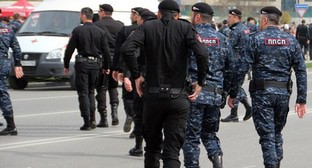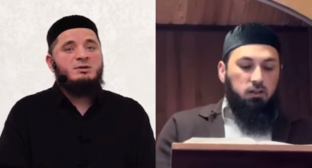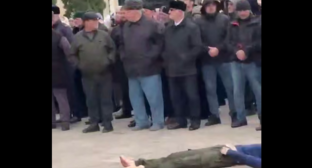31 July 2009, 21:00
Roundtable held in Rostov-on-Don on one-year anniversary of events in South Ossetia
The experts and journalists, who took part in the roundtable on the start of warfare in South Ossetia one year ago, spoke not only about the situation in the Caucasus a year after, but also about the modern geopolitical situation.
 According to Sergey Markedonov, Candidate of History and head of the division for problems of interethnic relations at the Institute of Political and Military Analysis, "the countries of the West had taken the USSR collapse as the final of the developments in this territory. However, until now, formation of new states is underway here. Their present frontiers had copied the administrative Soviet ones, which was not perceived equivocally. <…> For South Ossetia and Abkhazia, the factor of external threat will gradually vanish, but internal conflicts will aggravate. Russia has incurred a great social responsibility for the non-recognized states."
According to Sergey Markedonov, Candidate of History and head of the division for problems of interethnic relations at the Institute of Political and Military Analysis, "the countries of the West had taken the USSR collapse as the final of the developments in this territory. However, until now, formation of new states is underway here. Their present frontiers had copied the administrative Soviet ones, which was not perceived equivocally. <…> For South Ossetia and Abkhazia, the factor of external threat will gradually vanish, but internal conflicts will aggravate. Russia has incurred a great social responsibility for the non-recognized states."
 Eduard Popov, Doctor of Philosophy and the leading scientific collaborator of the Russian Institute of Strategic Studies, is sure that in August 2008 Russia defended not only its friendly nations, but also its own territorial integrity. "Otherwise, a chain reaction was possible, and the process could have gone on in the Caucasus," he has noted.
Eduard Popov, Doctor of Philosophy and the leading scientific collaborator of the Russian Institute of Strategic Studies, is sure that in August 2008 Russia defended not only its friendly nations, but also its own territorial integrity. "Otherwise, a chain reaction was possible, and the process could have gone on in the Caucasus," he has noted.
According to  Vladimir Trout, Doctor of History and professor at the division of the contemporary national history at the History Department of the Southern Federal University, "today, the international community has no legal basis for settling territorial disputes. And on August 8, 2008, a long-prepared grandiose international provocation took place. Russia's non-interference would have been just immoral. It would have undermined its authority in the whole Caucasus. And the victory in the informational playground would have been impossible a priori, since formally Russian troops arrived to the territory of an adjacent state."
Vladimir Trout, Doctor of History and professor at the division of the contemporary national history at the History Department of the Southern Federal University, "today, the international community has no legal basis for settling territorial disputes. And on August 8, 2008, a long-prepared grandiose international provocation took place. Russia's non-interference would have been just immoral. It would have undermined its authority in the whole Caucasus. And the victory in the informational playground would have been impossible a priori, since formally Russian troops arrived to the territory of an adjacent state."
As to the future of the non-recognized republics, the experts' opinions have almost coincided: the people of South and North Ossetia wish to unite, but they have too scanty resources to do so; Russia lacks them also; thus, the merger process will take plenty of time.
Author: Natalia Bazhenova Source: CK correspondent





Комментирование через Кавказский узел